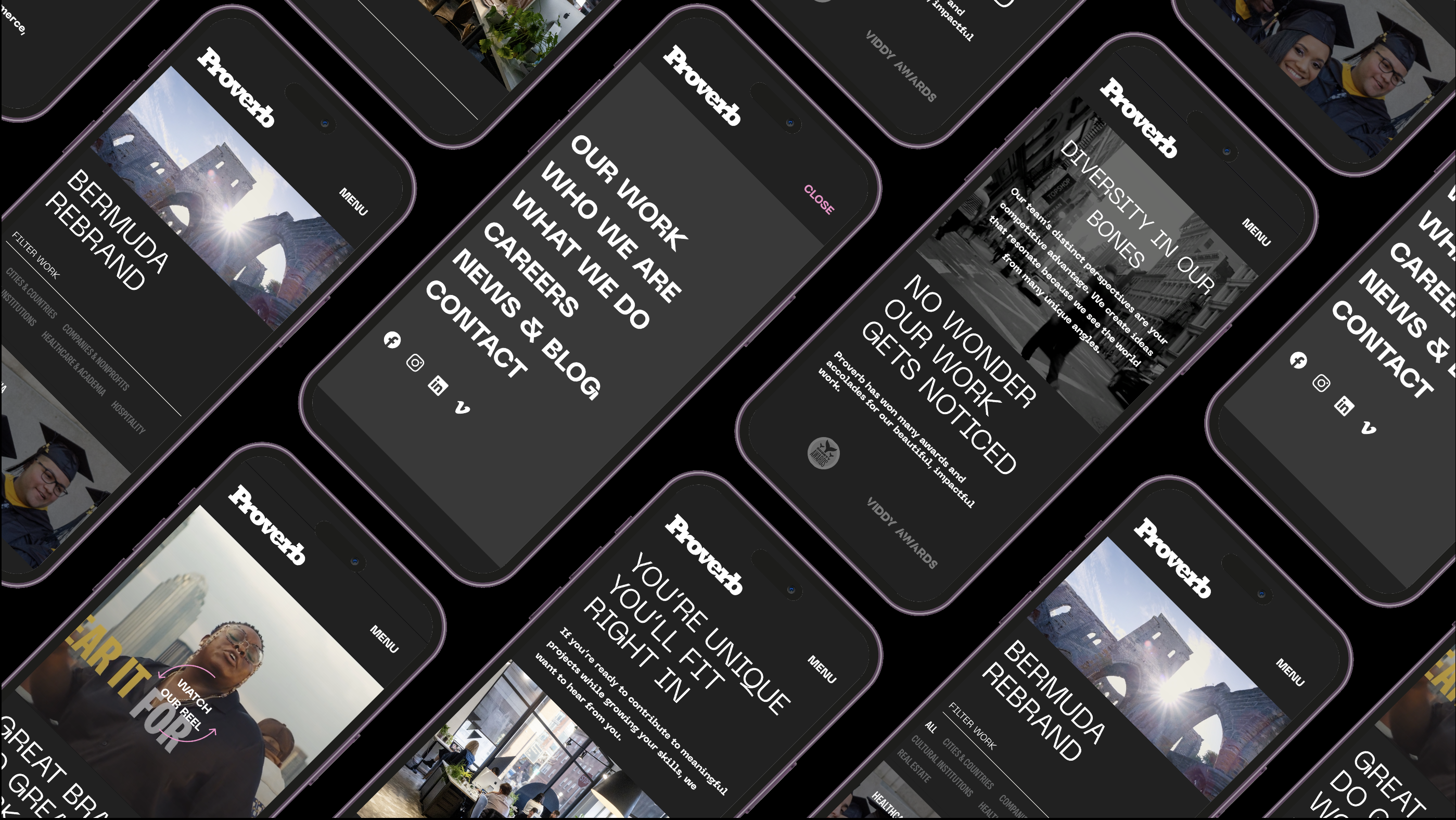These voices have always been a part of our city. It’s time to hear them.
the latest // BLOG
//
This is Boston. All Inclusive.
At Proverb, we’re always proud to be a Boston-based agency. But this Spring, proud is an understatement.
Last month—together with Mayor Kim Janey, the City of Boston, Colette Phillips Communications (CPC) and the Greater Boston Convention & Visitors Bureau (GBCVB)—we launched a $2.5 million, mind-shifting tourism campaign for the city.
The campaign stars Boston’s icons and landmarks — not the widely known tourist spots that typically receive the spotlight, but the many sides, flavors, stories, shops and small businesses that make our city impossible to replicate.
This isn’t a campaign about places, it’s a campaign about people.
Boston is known—and loved—for a lot of things: education, healthcare, tech, culture, history, doing mankind’s business. But Boston is not known as a vacation destination. Up until now, this gap in information has been filled by popular culture.
But the media hasn’t been helpful when it comes to defining Boston as a hospitality destination; the city’s reputation has been canned into a singular, whitewashed, overly traditional, drunken-sports-fan experience. To outsiders, we’re Matt Damon and the Red Sox — and although no self-respecting Bostonian would write off either of those things, there is so much more to share.
To showcase the “real” Boston—magic, multicultural, wicked-resilient—we are sharing the stories of people who keep the city running and thriving. Fueled by the passion of Boston natives, creatives and communities, it’s a narrative focused on representation. Boston is no stranger to revolution—the All Inclusive Boston campaign extends the city’s legacy of representation — an essential value that began with the Boston Tea Party — into a bold new future.
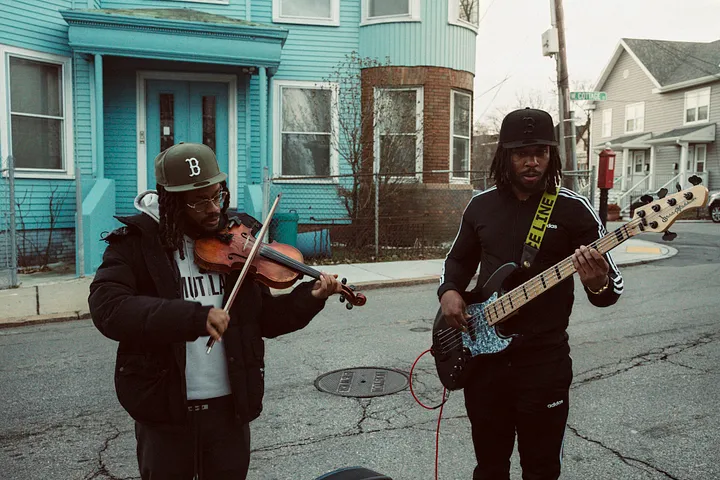
When we all entered a global pandemic, we didn’t do so on equal footing. This campaign is about supporting an equitable recovery. It was built to uplift all of Boston’s communities as we emerge from hibernation. In this way, the campaign is an initiative. It is a promise.
Our rallying cry is a living, changing, for-us-by-us portrait of that promise. All Inclusive Boston is a big idea that emerged from a simple truth: Boston has it all. It’s a double entendre that seamlessly links the campaign ask, tourism goals, social initiative and creative work.
In the tourism sense, everything is here: an award-winning food scene, legendary historic sites, unmissable cultural landmarks, wildly innovative tech and healthcare hubs, a city as scenic and walkable as its shoreline.
On a deeper level, our city is defined by people. All kinds of people. Bosses, business owners, hotel teams, mothers, artists, spin instructors, students, tech moguls, activists. Those who change the world in moments both big and subtle.
We are telling the story of Boston from all sides. The things people know, the things they don’t, and all the ways Boston is more than they ever expected.
It’s All Inclusive.
Once we had that line, we knew we had a campaign.
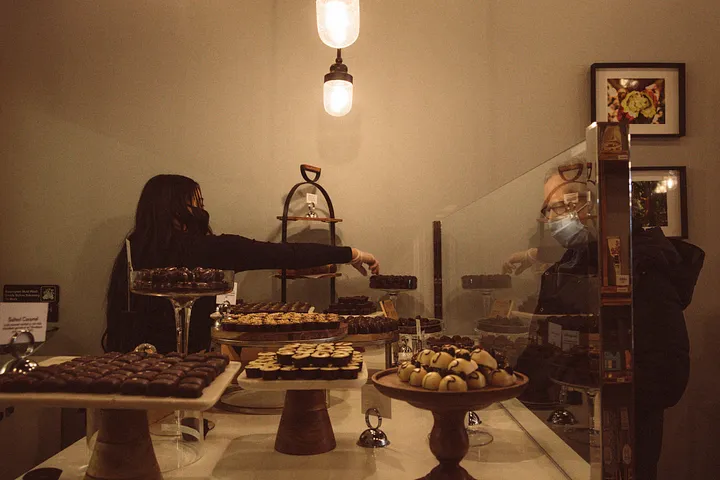
And the timing is right: we’re coming off the heels of the history-making installation of Mayor Kim Janey, the first Black person and first woman to be sworn in as mayor of Boston. Her leadership is a breath of change for our city, and a sign that its narrative is beginning to shift. When we showed her the campaign for the first time, she was washed with emotion.
As a minority-owned, Boston-based agency, we know it isn’t enough to go back to normal. We need to move into something better. “Advertising and branding are about creating the future. And in terms of where we are as a city and as a nation, we recognize that the stakes are incredibly high. We wanted to create something our city can grow into,” explained Daren Bascome, Proverb’s founder.
We want to emerge more local. More colorful. More empathetic, resilient and inclusive. Most importantly, we want to emerge together.
When people decide to travel again, we hope they will know that Boston welcomes them as they are. We hope they will venture into neighborhoods, restaurants and stores they have yet to experience. We hope they will support our hotels, institutions and businesses — big, small, local, black, brown, LGBTQIA+, minority and woman-owned — before they are gone.
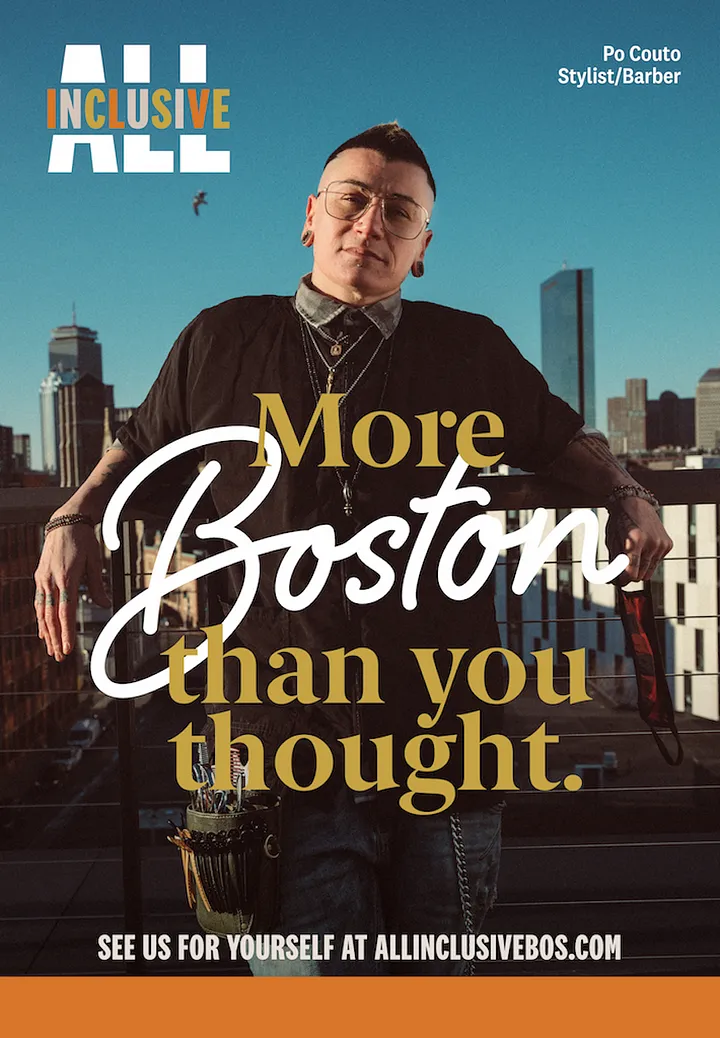
And this threat is very real: tourism is Boston’s third-largest industry and its workforce is 70% people of color. “A year ago, the COVID-19 pandemic brought the travel and hospitality sector to a standstill,” said Mayor Janey as she announced the launch of the campaign. “Almost overnight, hundreds of entrepreneurs lost their customers and thousands of workers lost their jobs.”
To boost tourism in Boston, we had to understand the barriers to entry. Our process started with targeted research, led by our strategic partner, Heart+Mind. Together, we set out to test the perception of Boston and what our city truly means to current residents and likely-to-visit travelers.
Among both groups, participants associated racism and lack of diversity with Boston. And yet, we heard excitement from the same groups when they learned about the culture-soaked activities our city has to offer.
These lab sessions revealed an essential insight: Boston has a perceptual racism problem.
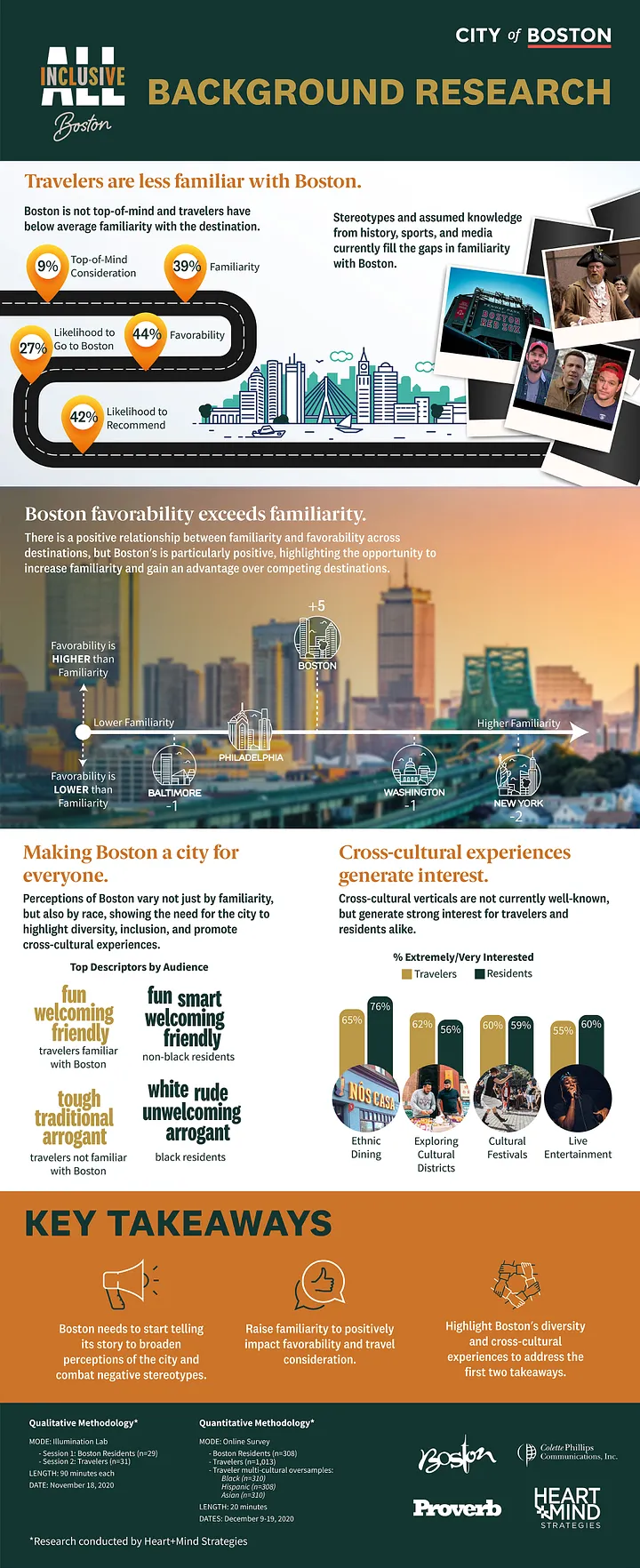
To combat Boston’s rude, arrogant, Ray Donovan-esque image, we developed a visual story centered on authentic expressions of our neighborhoods and communities. It’s a narrative shift we hope will resonate with travelers from all walks of life, including Black leisure travelers — an often ignored segment that spent over $100 billion in travel dollars in 2019.
The campaign colors are a vibrant interpretation of the universal experience of Boston: cobblestone orange, skyscraper teal and all the greens, yellows and pinks of our public parks and green spaces. The word “Boston” appears as a hand-drawn signature, emphasizing the impact each person has on the hub.

This is a campaign about Boston; it was shaped by the voices of our city.
It is the product of collaboration between us, the City of Boston, CPC—Boston’s oldest minority-owned and operated communications firm, as well as the lead agency on the campaign — and the GBCVB. We pressure tested the idea over countless Zoom calls; our perspectives spanned generations, skin tones, shapes, sexual orientations, occupations and backgrounds.
We developed the tone of the campaign video and radio spots with Porsha Olayiwola, a Black woman and Boston’s poet laureate. The video itself was shot by two POC videographers: Geoffrey Jean Baptiste and Anto Astudillo. It tells the story of those who live and work in the City of Boston, and features communities beyond traditional tourist sites.
To capture the city from an authentic lens, we partnered with local photographer and Boston native Harry Scales. We teamed up with BlackMath and Black Girl Digital to extend the visual language of the campaign, then worked with UNCOVr Media to place ads and messaging in targeted locations across the city.
“We wanted to create something that felt authentic and inspiring. The process was just as important as the final product,” remarked Chris Needham, Proverb’s Director of Client Services. “Like most powerful work, we didn’t do it alone.”
The campaign is running in the tristate area — on billboards and OOH ads, streaming services, digital publications, social media and radio — to encourage Bostonians and travelers to try new restaurants or explore new neighborhoods. The ads direct people to a microsite full of curated resources: restaurants, events, itineraries, hotels, neighborhoods and experiences both known and unknown.
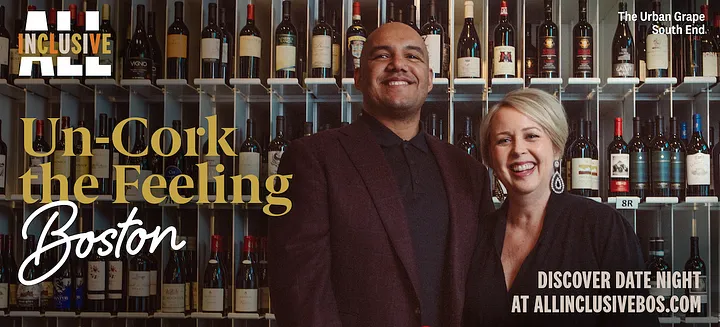
Places like 50Kitchen in Dorchester, Blue Nile in Jamaica Plain, The Urban Grape in The South End and Black Market in Roxbury are making history every day—and with increased awareness, people can put their time and money into something meaningful.
After all, travel is about celebrating diversity.
And while there are still many people who might not describe Boston as all inclusive, this campaign is a call to action. It asks visitors to raise their expectations, and it’s up to us — as a city and as people — to do the work to back that up. There is progress to be made and stories to tell — stories that are often overlooked.


